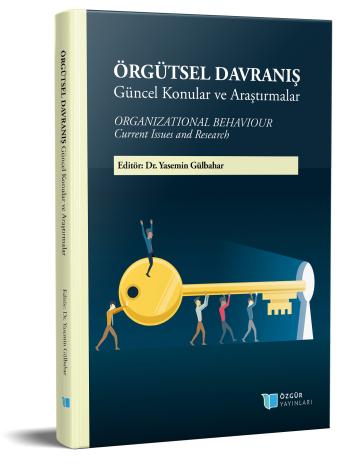
Sosyal Değişim Teorisi Bağlamında Örgütsel Vatandaşlık Davranışına Tarihsel ve Politik Bir Bakış
Şu kitabın bölümü:
Gülbahar,
Y.
(ed.)
2023.
Örgütsel Davranış: Güncel Konular ve Araştırmalar.
Özet
Belirsizliğin ve kaosun hâkim olduğu günümüz post-modern dünyasında artık kural temelli hiyerarşik örgütler, yerlerini uzman gücü ve bilginin dolayısıyla da insanın daha önemli olduğu işletmelere bırakmaktadırlar. Sürekli değişimin gerekli olduğu bu yeni yapılarda kişilerin ve kurumların yönetilmesi için bireylerin örgüt içindeki davranışlarının performans üzerindeki etkisi ve bu davranışların olumlu şekilde yönlendirilmesinin önemi daha da artmaktadır. Bu çalışmada örgütsel davranış literatürünün iki önemli araştırma alanı olan örgütsel vatandaşlık davranışı ve örgütsel politika kavramları, birbirleri arasındaki ilişki üzerinden ve sosyal değişim teorisi temelinde ele alınmıştır. Yönetim literatüründe politika ile ilgili araştırmalar son yıllarda artsa da hakkettiği önemi görememektedir. Yapılan araştırmalar genellikle, politikayı yalnızca manipülasyon ve yöneticilerin ya da yönetimin çıkarını korumaya yönelik davranışlarla bağdaştırmaktadır. Bu olumsuz algı, örgüt içi politikanın eksik anlaşılması ve anlatılmasına yol açmaktadır. Fakat politik davranışlar hem olumlu hem de olumsuz davranışları içermektedir. Yöneticilerin uygulamış olduğu politikalar ve göstermiş oldukları politik davranışlar çalışanların potansiyel ve var olan örgütsel vatandaşlık davranışlarıyla yakından ilişkilidir. Sosyal Değişim Teorisi bağlamında, yöneticiler çalışanların beklenti ve ihtiyaçlarını karşıladıkları ölçüde çalışanların da buna karşılık vatandaşlık davranışlarının arttığı görülmektedir.

